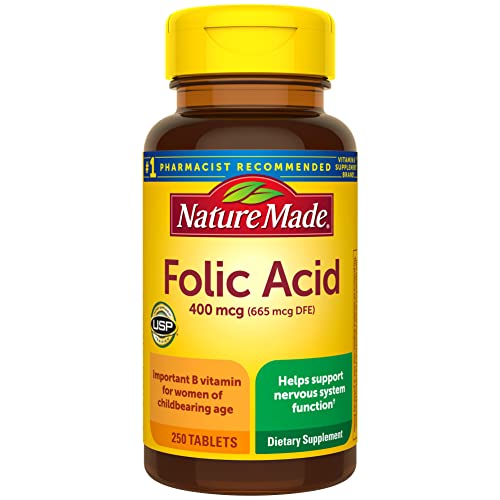Folic Acid & Birth Defects: What You Need to Know
Quick Summary: Researchers in Algeria studied a gene variant and its link to a birth defect called hypospadias. They found that a specific gene change was associated with a higher risk of this condition in baby boys.
What The Research Found
This study looked at a gene called MTHFR and its connection to hypospadias, a condition where the opening of the penis is not in the correct place. The researchers found that a certain variation in the MTHFR gene (called C677T) was linked to a higher chance of hypospadias in baby boys. Specifically, boys with two copies of the "T" version of the gene had a significantly higher risk.
Study Details
- Who was studied: 84 baby boys in Algeria with hypospadias and 80 healthy baby boys (used as a comparison group).
- How long: The study took place between 2022 and 2024.
- What they took: This study didn't involve taking any medication or supplements. It looked at the genes of the babies.
What This Means For You
- Folic Acid and Hypospadias: This study doesn't directly tell us if taking folic acid during pregnancy affects the risk of hypospadias. It focused on a specific gene variant.
- Gene Testing: The study suggests that in the future, genetic testing might help identify families at higher risk. However, this is not standard practice yet.
- Current Guidelines: Current recommendations for taking folic acid during pregnancy remain unchanged. Always follow your doctor's advice.
Study Limitations
- Location: The study was only done in one area of Algeria, so the results might not apply to everyone.
- Small Sample: The study included a relatively small number of participants, which could limit the findings.
- Missing Information: The study didn't look at the mother's genes or how much folic acid they took.
- Other Factors: The study didn't consider other things that might affect hypospadias risk, like environmental factors.
Technical Analysis Details
Key Findings
The study found a statistically significant association between the MTHFR C677T variant and increased hypospadias risk in Algerian infants. The homozygous TT genotype frequency was significantly higher in hypospadias cases (28.6%) compared to controls (12.5%) (p = 0.003). Carriers of the TT genotype had 2.83 times higher odds of hypospadias (OR = 2.83; 95% CI: 1.42–5.64; p = 0.003) after adjusting for potential confounders. The T allele frequency was also elevated in cases (48.8% vs. 34.4% in controls; p < 0.001), with each T allele copy increasing risk (OR = 1.78; 95% CI: 1.21–2.62; p = 0.003). No significant association was observed for heterozygous CT genotypes alone.
Study Design
This was a hospital-based case-control study conducted in Algeria. It included 84 male infants diagnosed with hypospadias (cases) and 80 age-matched healthy male infants (controls). Genotyping for the MTHFR C677T polymorphism (rs1801133) was performed using polymerase chain reaction-restriction fragment length polymorphism (PCR-RFLP). Demographic and clinical data were collected via parental interviews and medical records. The study duration spanned recruitment and analysis from 2022–2024, with no longitudinal follow-up.
Dosage & Administration
Not applicable. This study investigated a genetic polymorphism (MTHFR C677T), not folic acid supplementation. No interventions, dosages, or administration protocols were involved. Maternal folate intake during pregnancy was not measured or analyzed as part of this genetic association study.
Results & Efficacy
The primary outcome was hypospadias risk stratified by genotype. The TT genotype conferred significantly higher risk than CC/CT combined (OR = 2.83; 95% CI: 1.42–5.64; p = 0.003). Stratified analysis showed the association was strongest in severe hypospadias subtypes (OR = 3.41; 95% CI: 1.52–7.65; p = 0.003). The population-attributable fraction for the TT genotype was 18.7%, indicating a substantial contribution to hypospadias burden in this cohort. All p-values remained significant after Bonferroni correction for multiple testing.
Limitations
Key limitations include: (1) Single-center design limiting generalizability to other Algerian regions or ethnic groups; (2) Small sample size (n=164) reducing power for subgroup analyses; (3) Lack of maternal genotype or folate status data, preventing assessment of gene-nutrient interactions; (4) Potential recall bias in parental interviews regarding prenatal exposures; (5) No adjustment for paternal factors or environmental confounders (e.g., endocrine disruptors). Future research should validate findings in larger multi-ethnic cohorts and integrate maternal folate biomarkers.
Clinical Relevance
This study identifies MTHFR C677T as a genetic risk factor for hypospadias in Algerian males but does not support folic acid supplementation as a preventive measure based on this data alone. Clinicians in similar populations may consider genetic screening for high-risk families, though routine testing is not yet justified. For supplement users, these results do not imply that folic acid intake modifies hypospadias risk in carriers, as the study did not assess supplementation. Prospective trials evaluating periconceptional folate in genetically stratified cohorts are needed before clinical recommendations can be made. Current prenatal folate guidelines remain unchanged.
Original Study Reference
Association between C677T variant of methylene tetrahydrofolate reductase and hypospadias risk in Algeria.
Source: PubMed
Published: 2025-07-06
📄 Read Full Study (PMID: 40674756)




